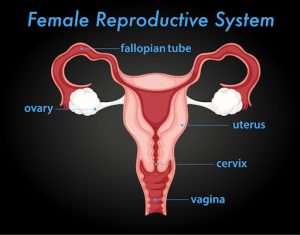Disclaimer:
This article is for information purposes only. It is not a substitute for medical advice or treatment. Seek medical care for your treatment.
Alcohol use disorder:
Alcohol use disorder is a pattern of drinking that includes issues with self-control, obsession with alcohol, or using alcohol even when it creates troubles. Some of the signs of this illness include wanting more alcohol to gain the same effect or experiencing withdrawal when drinking is suddenly reduced or ceased. A level of drinking that is generally referred to as alcoholism is a component of alcohol use disorder. You most likely have alcohol use disorder if your drinking habits frequently cause severe anxiety and hinder your everyday functioning. This disorder may range from mild to severe. Early treatment is essential since even a moderate illness can aggravate and cause major issues.
Binge drinking:
Any alcohol usage that harms your health or safety or results in other alcohol-related issues is considered unhealthy. It is called binge drinking, which is the pattern of drinking when a man consumes five drinks or more in two hours, or where a woman consumes at least four drinks in two hours. Binge drinking result in grave threats to one’s health and safety.
Diagnosis:
You must visit your doctor. If your doctor deduces that you have a problem with alcohol, you may be referred to a health provider. Your doctor will take the following steps to determine your alcohol problem:
- Ask some questions related to your drinking habits:
The provider takes your permission before speaking with your family members or friends. Privacy rules restrict your doctor from divulging any details about you without your permission.
- Do a physical examination:
Your doctor might do a physical examination and ask about your health. There are various bodily symptoms of problems with alcohol usage.
- Recommend lab tests and imaging tests:
Given the fact that there are no specialised tests for divulging alcohol use disorder, some patterns of lab test findings may strongly support it. Additionally, you might need testing to find health issues that could be caused by your alcohol consumption. Test results may reveal organ damage.
- Complete psychological evaluation:
Questions pertaining to your symptoms, thoughts, feelings, and behavioural patterns are part of this evaluation. To assist in addressing these queries, you might be asked to finish a questionnaire.
Treatment:
Treatment for alcohol use disorder can vary from person to person based on their needs. . A quick intervention, individual or group counselling, an outpatient programme, or a residential inpatient stay is some of the possible treatment options. The major therapeutic objective is to try to stop drinking in order to uplift the quality of life. Mentioned below is the treatment for alcohol use disorder:
- Withdrawal and detox:
First step is a detoxification programme, or medically managed withdrawal. This generally takes 2 to 7 days and is also referred to as detox. To cease withdrawal symptoms, sedative drugs can be required. Inpatient treatment facilities or hospitals are frequently used for detoxification.
- Learning new skills and making a treatment plan:
Specialists in alcohol treatment are typically involved in this procedure. Goal-setting, behaviour modification strategies, the use of self-help books, counselling, and aftercare at a treatment facility may all be part of it.
- Psychological counselling:
You can better understand your alcohol use disorder with the aid of counselling and therapy for both groups and individuals, which also supports recovery from the psychological effects of alcohol use. Couples or family therapy may be beneficial to you because family support can be essential to the healing process.
- Oral medications:
Although disulfiram won’t cure alcohol consumption disorder or stop you from drinking, it might help you abstain from drinking. Disulfiram causes a bodily reaction if alcohol is consumed while you’re taking it, including flushing, nausea, vomiting, and headaches.
Naltrexone, a medication that inhibits the positive effects of alcohol, may prevent binge drinking and decreases the desire to consume alcohol. Once you stop drinking, acamprosate may help you stave off cravings for alcohol. Naltrexone and acamprosate do not make you feel nauseous after consuming alcohol, in contrast to disulfiram.
- Injected medication:
A medical expert will inject Vivitrol, a naltrexone derivative, once every month. Although a similar medication is available in pill form, individuals healing from alcohol use disorder may find it easier to utilise the injectable form of the drug consistently.
- Constant support:
People recovering from alcohol use disorders can cease drinking, manage relapses, and adjust to significant lifestyle adjustments with the aid of aftercare programmes and support groups. This could include receiving medical or mental health treatment or joining a support group.
- Treatment for psychological problems:
Other mental health issues frequently co-occur with alcohol consumption disorder. You may require talk therapy (psychotherapy), medication, or other treatments if you have depression, anxiety, or another mental health problem.
- Medical treatment for health related issues:
Once you stop drinking, a lot of alcohol-related health issues substantially get better. However, some medical issues may call for continuing therapy and observational care.
- Spiritual practice:
People who engage in some kind of consistent spiritual practice may find it simpler to keep up their sobriety from alcoholism or other addictions. Gaining further understanding of one’s spiritual side is frequently a crucial part of healing.
Conclusion:
Your attitude is influenced by various things. Milder cases might only be difficult briefly. In severe situations, the struggle can last a lifetime.
Your chances of recovering are better the earlier you identify a potential issue and consult your healthcare professional.




